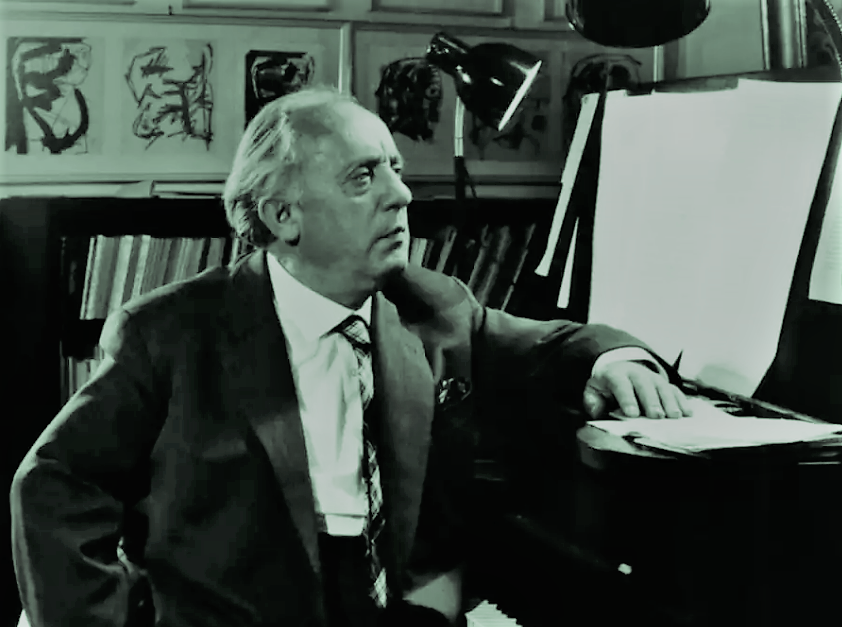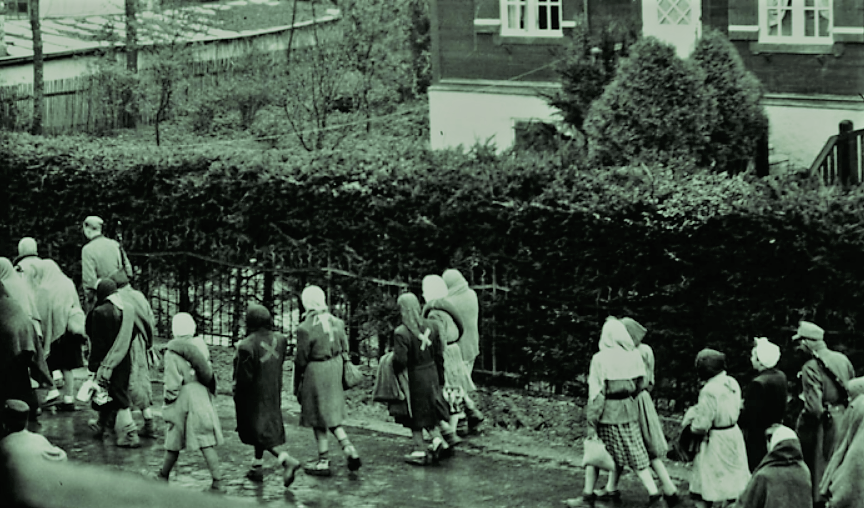
Today marks the 117th birthday of Karl Amadeus Hartmann. He was born on 2 August 1905 in Munich and came into contact with art and music at an early stage. He studied trombone and composition at the Staatliche Akademie der Tonkunst in Munich from 1924 to 1929.
He hated Nazism and Hitler and anything that ranked extreme socialism and communism. A fellow composer, Udo Zimmermann, said about Hartmann, “His concept of life oriented towards humanity is inscribed in all his scores. A warning in view of the atrocities of this world, but also resistance from the heart: revocation of the spirits, love and life.”
His compositions were often politically charged, as Hartmann was a socialist who staunchly opposed the Nazis and fascism. During World War II, Hartmann half-poisoned himself to avoid military conscription.
He voluntarily withdrew completely from musical life in Germany during the Nazi era, while remaining in Germany, and refused to allow his works to be played there. An early symphonic poem, “Miserae” (1933–1934, first performed in Prague, 1935) was condemned by the Nazi regime but his work continued to be performed, and his fame grew abroad. A number of Hartmann’s compositions show the profound effect of the political climate. His “Miserae” (1933–34) was dedicated to his friends…who sleep for all eternity; we do not forget you (Dachau, 1933–34), referring to Dachau Concentration Camp, and was condemned by the Nazis. His “Piano Sonata 27 April 1945,” is about the thousands of prisoners from Dachau, whom Hartmann witnessed being led away from Allied forces at the end of the war.
Just three days before the liberation of the Dachau camp, the SS forced approximately 7,000 prisoners on a death march from Dachau, south to Tegernsee. During the six-day death march, anyone who could not keep up or continued was shot. Many died of exposure, hunger, or exhaustion. American forces liberate the Dachau Concentration Camp on 29 April 1945. In early May 1945, American troops liberate the surviving prisoners from the death march to Tegernsee.

Solly Ganor, a survivor said about the march, “We could see the furtive parting of curtains as German civilians peered out at us. To our surprise, a few of them came out and tried to offer us some bread, but the result was disastrous. Hundreds of starving inmates would descend on the benefactor, often knocking him or her down. The bread was immediately torn to pieces, and the guards set upon the mob. Each time this happened several more bodies were left by the side of the road.”
After the fall of the Nazi regime, Hartmann was one of the few prominent surviving anti-fascists in Bavaria whom the postwar Allied administration could appoint to a position of responsibility. In 1945, he became a dramaturge at the Bavarian State Opera and there, as one of the few internationally recognized figures who had survived untainted by any collaboration with the Nazi regime, he became a vital figure in the rebuilding of (West) German musical life. Perhaps his most notable achievement was the “Musica Viva” concert series, which he founded and ran for the rest of his life in Munich.
He died on 5 December 1963 in Munich.
Although Hartmann is one of the greatest German composers of the 20th century, he is forgotten in the English-speaking world.
sources
https://holocaustmusic.ort.org/politics-and-propaganda/hartmann-karl-amadeus/

Leave a reply to dirkdeklein Cancel reply